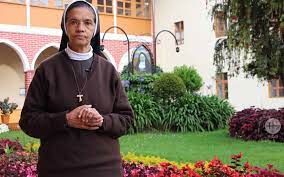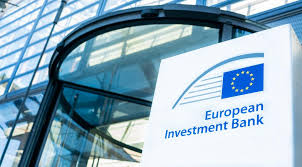A cardinal testified Thursday that Pope Francis allowed spending up to one million euros to liberate a Colombian nun kidnapped in Mali by al-Qaida-linked militants, disclosing hitherto undisclosed papal authorization to engage a British security agency to discover the nun and secure her liberation.
Cardinal Angelo Becciu’s explosive statement might have major security ramifications for the Vatican and Catholic Church, as he revealed that the pope was willing to pay a ransom to Islamic extremists in exchange for the release of a nun, who was subsequently released last year.
Ransom payments are rarely, if ever, acknowledged, in order to deter similar kidnappings, and it’s unclear how much — if any — Vatican money ended up in the terrorists’ hands. Prosecutors said one of Becciu’s co-defendants spent half of the money on high-end luxury things for herself.
As a matter of state and the pontifical secret, Becciu, who was previously one of Francis’ top aides as the No. 2 in the Vatican secretariat of state, kept his testimony from the Vatican tribunal for nearly two years. However, after Francis liberated him from the confidentiality condition, he spoke freely in his own defense on Thursday, giving the most anticipated testimony of the yearlong trial to date.
Becciu is one of ten people charged in the Vatican’s massive financial fraud trial, which began with a 350 million euro investment in a London property and has since evolved to include other alleged crimes. Prosecutors have accused the defendants of stealing millions of euros from the Holy See through fees, commissions, and faulty investments.
Becciu is accused of embezzlement, misuse of office, and witness tampering, all of which he denies. His evidence on Thursday focused on the allegations surrounding his relationship with Cecilia Marogna, an Italian self-described intelligence expert.
Marogna told Italian media that she assisted the Holy See in negotiating the release of Catholic captives held in Africa. Prosecutors accuse her of defrauding the Vatican of 575 million euros, citing bank records from her Slovenian holding company that shows nine wire transfers from the Vatican in 2018-2019 for unspecified humanitarian purposes, as well as expenditures from the account at Prada, Luis Vuitton, and high-end hotels. The transactions, according to Marogna, were reimbursements for expenses and pay for her services.
Generals Luciano Carta and Gianni Caravelli, two of Italy’s senior secret service officials, joined Marogna at a meeting with Becciu in the Vatican in October 2017.
Following the kidnapping of a Colombian nun, Sister Gloria Cecilia Narvaez, in Mali in February 2017, Becciu stated he appealed to Marogna for assistance. Al-Qaida in the Islamic Maghreb, which has funded its insurgency by kidnapping Westerners, had kidnapped her. Throughout her detention, the group displayed Narvaez on camera appealing for help from the Vatican.
Becciu said he had received requests for assistance from the Vatican’s nuncio in Colombia as well as other sisters from the nun’s religious order. He said he informed Francis and Marogna about the situation, and that they encouraged him to engage with The Inkerman Group, a British intelligence organization, to ensure the nun’s release.
Becciu said that Francis gave him permission to carry out the Inkerman operation but prohibited him from alerting anyone else, even the Vatican’s own police chief, about it. According to Becciu, Francis was anxious about the security and reputational ramifications if the story leaked.
In mid-January 2018, Becciu and Marogna met with Inkerman officials at their London office, according to Becciu.
Officials from Inkerman stated there were no guarantees of success and that the overall cost may reach one million euros, according to Becciu. Marogna became the major intermediary and the one to receive periodic payments from the Vatican secretary of state for the business because the Vatican intended to stay external to any activity, Becciu stated.
On Jan. 15, 2018, when Francis was en route to Peru, Becciu said he gave Francis a preliminary oral readout of the London meeting.
Becciu testified, “He listened to me and confirmed my determination to proceed.” “In a subsequent meeting with the Holy Father in Rome, I told him more about the conversation we had with the Inkerman’s and the sum we should have estimated in broad terms: around 1 million euros, part to pay for the creation of a network of contacts, and part to pay for the effective liberation of the nun.”
“I made the point that we shouldn’t have gone beyond that number.” He said yes. “I must state that the Holy Father approved every step of this operation,” Becciu stated.
After more than four years in captivity, Narvaez was released in October of 2021. She visited Francis at the Vatican shortly after.
Prosecutors believe they have evidence that the Vatican’s secretariat of state wired a similar sum to Inkerman’s British bank account in addition to the 575,000 euros sent to Marogna’s Slovenian accounts.
Becciu also addressed allegations leveled against him about Cardinal George Pell, who resigned as the Vatican’s financial czar in 2017 to face historic sex abuse charges in his native Australia, for which he was acquitted. Pell had numerous disagreements with Becciu during his stay at the Vatican, and Italian media have claimed that Becciu facilitated money transfers from the Vatican to Australia that contributed to the sex abuse case against him.
Becciu issued two letters on Thursday to deny the claims: One from Cardinal Pietro Parolin, the current Secretary of State, saying that the 1.46 million euros paid to Australia were to pay for the domain name “.catholic.” The other is a letter from Pell, dated September 11, 2015, sanctioning the expenditure.




















